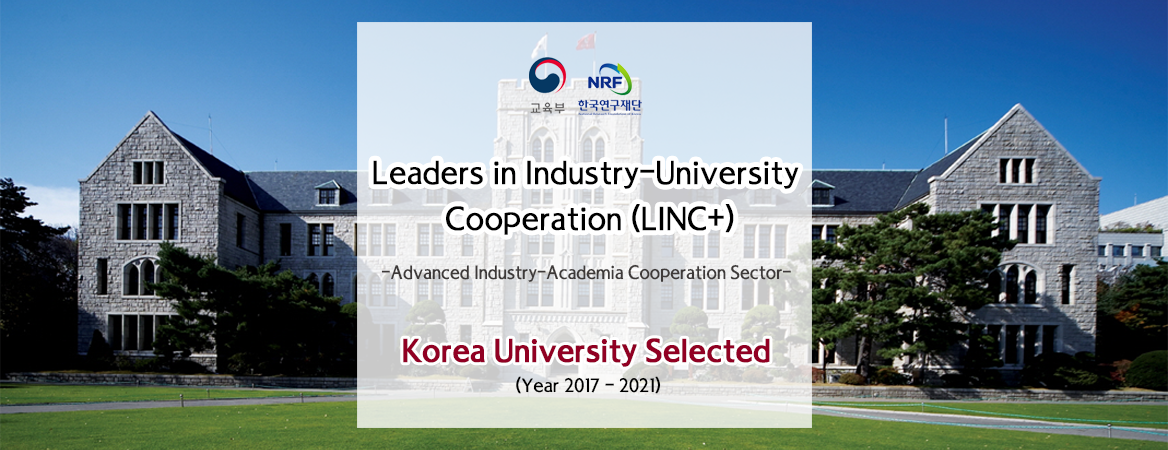News
KUBS News
KU Selected for “Leaders in INdustry-university Cooperation (LINC+)”
KUBS builds a distinguished Industry-Academia Cooperation model utilizing its unique startup institute, internship program, etc.
KUBS devotes to help local industries and communities to be both developed by realizing the world-class Industry-Academia Integration.
KUBS builds a distinguished Industry-Academia Cooperation model utilizing its unique startup institute, internship program, etc.
KUBS devotes to help local industries and communities to be both developed by realizing the world-class Industry-Academia Integration.
Korea University is selected as an “Advanced Industry-Academia Cooperation University” in the “Leaders in INdustry-university Cooperation (LINC+),” conducted by the Ministry of Education and the National Research Foundation of Korea.
A total of five colleges, including △Korea University Business School (KUBS), △College of Engineering, △College of Health Science, △College of Informatics, and △School of Art & Design, participated in the KU LINC+ Project. Of all, KUBS and College of Engineering will play a pivotal role in this project. KUBS received excellent marks by proposing a distinguished “Industry-Academia Cooperation” model based on its independently operated startup institute and global & domestic internship programs.
As a selected university for the LINC+ project, KUBS will cooperate closely with local industries and communities to cultivate excellent manpower, create jobs, and support innovation in small and medium-sized companies. The business school plans to strengthen its competitiveness and actively engage in the project activities.

Meanwhile, the LINC+ is a large-scale financial support project with an estimated budget of 327 billion KRW. In addition, this is a newly established Socially-Customized project closely linking university curriculums to social demands. A total of 55 universities, including Sungkyunkwan University and Hanyang University, were selected for the LINC+ project, which aims to alleviate the youth job crisis and labor shortage at firms. Each university was evaluated whether the proposed “Industry-Academia Cooperation” model is appropriately reflecting its vision, circumstances, and features, and is feasible with internal and external conditions.
Korea University will receive up to 5 billion KRW per year through the LINC+ project. This year’s allocated amount is 3.2 billion KRW. The LINC+ project will be sustained for five years from 2017 to 2021. The university plans to expand a new center within Research & Business Foundation. The director of the center is Professor Kwan Young Lee, who is also research superintendent of Korea University.
The key development plan of the KU LINC+ is “emerging future knowledge industry by establishing an integrated Industry-Academia Cooperation platform.” The university strives to develop a global Industry-Academia Cooperation model through the following diverse programs: Student-designed Major, Fusion Major, π-Ville for Young Entrepreneurs, and KU All-Set Support. The three core strategies of innovative national and local industries include △establishing a world-class Industry-Academia Cooperation infrastructure, △developing an integrated educational and research system for future industry, and △revitalizing Anam-Hongreung Valley.
In particular, Korea University signed an MOU with KIST Graduate School. With Anam-Hongreung Valley, aiming to be Korea’s Silicon Valley, the university intends to pioneer and realize the world-class Industry-Academia Integration with industries, universities, research institutes, and communities. Once the platform is created, a variety of supports, including startup ideas and support services, will be offered by π-IDEAS Factory and KUBS Startup Institute in conjunction with local communities.


